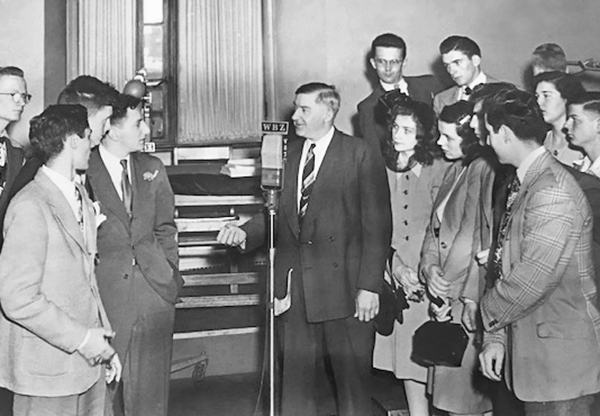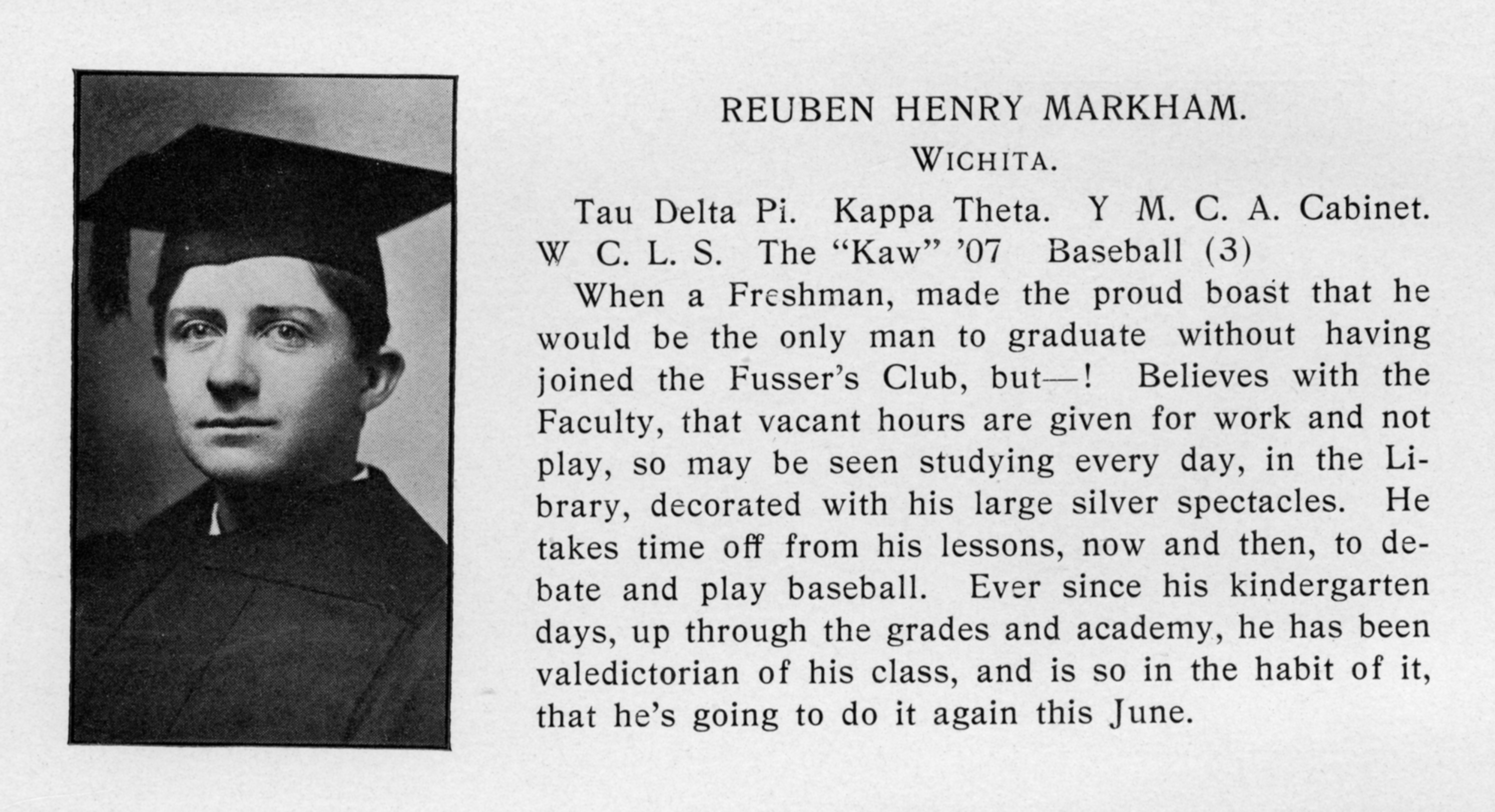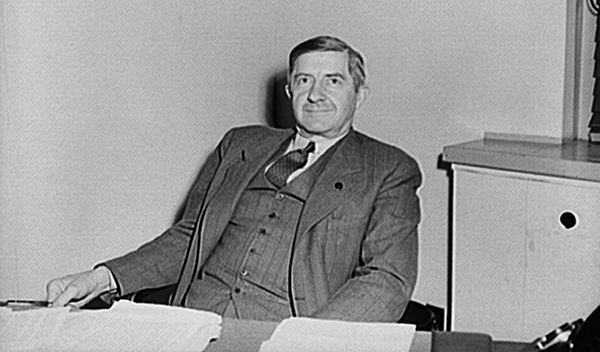Historical Spotlight
Friend of Humanity
Alumnus spent career writing in opposition to Nazi Germany, communism

From The Ichabod - Spring 2021
By Ted Van Dyke (Editor’s note: Ted Van Dyke is the grandson of Reuben Markham)
(Editor’s note: Ted Van Dyke is the grandson of Reuben Markham)
In 1949, the Washburn Alumni Association initiated its Distinguished Service Award, choosing Reuben Markham, 1908, among its first honorees. The citation mentioned him as “distinguished foreign editor for the Christian Science Monitor,” a “widely known lecturer and author,” and “at present invited by the United States government to perform a task for which he is considered especially qualified.” Markham was known for his lifelong opposition to dictatorships; his life reflected Washburn’s abolitionist heritage and inclusive core values.
Born of homesteaders in Smith County, Kansas, in 1887, Markham had a distinguished career at Washburn as valedictorian of both the high school academy and the college. After graduating, he married Mary Gall, 1908, the class salutatorian. Years later, she said, “(Washburn) did a lot for us.”

“A Kansas college in those days,” Reuben once wrote, “offered a clear picture of life and the world… A good society seemed possible. Patriotism seemed noble; faith, alluring; loyalty, heroic… The choice between right and wrong seemed simple, duty clear… But life didn’t turn out that way. Truth itself came to seem very elusive.”
Upon graduation, Markham attended Union Theological Seminary. Ordained a Congregational minister in 1912, he and Mary sailed for Bulgaria to be missionary educators at an American school. After a military coup in 1923, Reuben became increasingly outspoken about the Bulgarian government’s violent repression of the peasants, and the regime forced his resignation from the mission in 1925. Ultimately, he was tried and convicted, but subsequently amnestied. He joined the Christian Science Monitor, eventually becoming its Central European correspondent, and was considered by many to have been America’s foremost authority on the Balkans.
Returning to the United States in 1939, Markham was appalled at the rise of Nazi Germany. In March 1941, the nadir of Allied prospects, with France defeated, Russia allied with Germany and England under assault, Reuben sounded a clarion call for America to enter the war in his best-selling “The Wave of the Past.” In response to Anne Lindbergh’s isolationist, “The Wave of the Future,” Reuben wrote, “let us act with all our might… It means to do everything that must be done. Nothing less. In a supreme struggle, for supreme values, supreme efforts must be made… Whatever it may cost.”
After Pearl Harbor, Reuben became deputy director for the Balkans for the Office of War Information. Spending 1944 in Europe, he saw the brutality of communism and the threat that Russia might dominate all of Europe and Asia. As early as 1941, Reuben had written, “Communism is a blight and a curse, destroying the masses and blasting every hope or dream that little men and women have cherished for the better life.” When America threw its support to communist guerilla leader Josip Broz Tito in Yugoslavia in 1944, Reuben resigned in protest. His life’s work then became preventing Soviet expansion and fighting totalitarianism.
In 1945, the Monitor sent Markham back to Romania and Bulgaria. One political meeting he covered was violently disrupted, with Markham escaping out the back, climbing an outdoor staircase and slipping into an apartment where he spent the night amid sounds of gunfire. His reporting caused Russia to expel him in June 1946. Shortly afterward, he met with President Harry Truman at the White House to convey his first-hand observations.

He then analyzed Romania’s subjugation in “Rumania Under the Soviet Yoke,” and the Yugoslav tragedy in “Tito’s Imperial Communism.” His strong stance against communism led the United States to invite him back into government in 1949 as part of the newly created C.I.A. Sadly, he died seven months later.
Championing the oppressed was something of a Markham family tradition that became intertwined with Washburn. Markham’s grandfather, also a Congregational minister, participated in the Underground Railroad. His grandson remembered “his telling of riding in a lumber wagon with a shotgun concealed while slaves were covered with blankets lying in the wagon bed.” After the Civil War, he worked raising money for the American Missionary Association, which helped found 11 historically black colleges. At least eight of his grandchildren attended Washburn, including Reuben’s first cousin, Hattie Halbert, 1900, who was secretary to the president of Washburn under five administrations from 1901-1942.
The Monitor honored Reuben Markham with an editorial after his death entitled, “Friend of Humanity.” The Washburn community can take pride in an alumnus who worked so effectively against two great tyrannies of the 20th century.